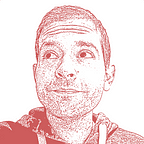Wales is Looking for its Next Paralympic Champions
Welsh athletes are preparing for the Rio 2016 Paralympic Games. Disability Sport Wales is responsible for selecting and supporting them in their quest for the podium. By nurturing their talent and showing their achievements, the Cardiff-based organisation wants to encourage people with disabilities to practice sports.
Training hard at the Sport Wales National Centre in Cardiff is a necessary step if athletes want to succeed in qualifying for the Paralympic Games in Rio de Janeiro this September. “As an athlete you always look forward to what you can accomplish next, and where your chosen path may lead you,” sais Nathan Stephens, former javelin and discus world champion and talent officer for Disability Sports Wales (DSW).
For Stephens this journey began when he was 9 years old and lost his legs. An event that didn’t stop him from experiencing different sports and achieving personal and professional success. Now, when he is not looking for a new generation of athletes, he keeps training to join the national team at Rio 2016.
Stephens is part of a team of paid and volunteer professionals from different parts of Wales that oversees the Academy Programme, an initiative aimed at supporting selected athletes in their training, from coaching to consultancy. At the 2012 London Games, the Programme assisted 24 of the 38 Welsh athletes and had a major role in winning 14 medals, including two golds in athletics and one in cycling. The team wants to improve this record and expand its presence in Wales creating a bigger community of sportsmen and sportswomen with disability.
The ultimate goal of the Cardiff-based organisation is to create a “nation of disabled champions” by promoting physical activity amongst the 600,000 Welsh (or the 19 per cent of the population) with disabilities. In the last ten years, DSW has built a network of more than 750 clubs and sessions, which offers people the opportunity to try and play different sports and activities, and be supported by coaches and volunteers.
Since Beijing 2008 people have become more interested in Paralympic Games. For Disability Sport Wales setting a new mark in Rio 2016 will be an important step to promote new initiatives and offer visibility on sport opportunities for disabled people. A success DSW would like to pair with more resources and new people joining them to help supporting the different activities undertaken by the organisation.
A challenge Stephens and his colleagues are ready to take because they believe every disabled person in Wales should be aware of the possibility to practice a sport that suits their needs and interests. For some, the first step to became the next Welsh Paralympic champion.
Originally published on Cardiff News Plus on February 1, 2016
